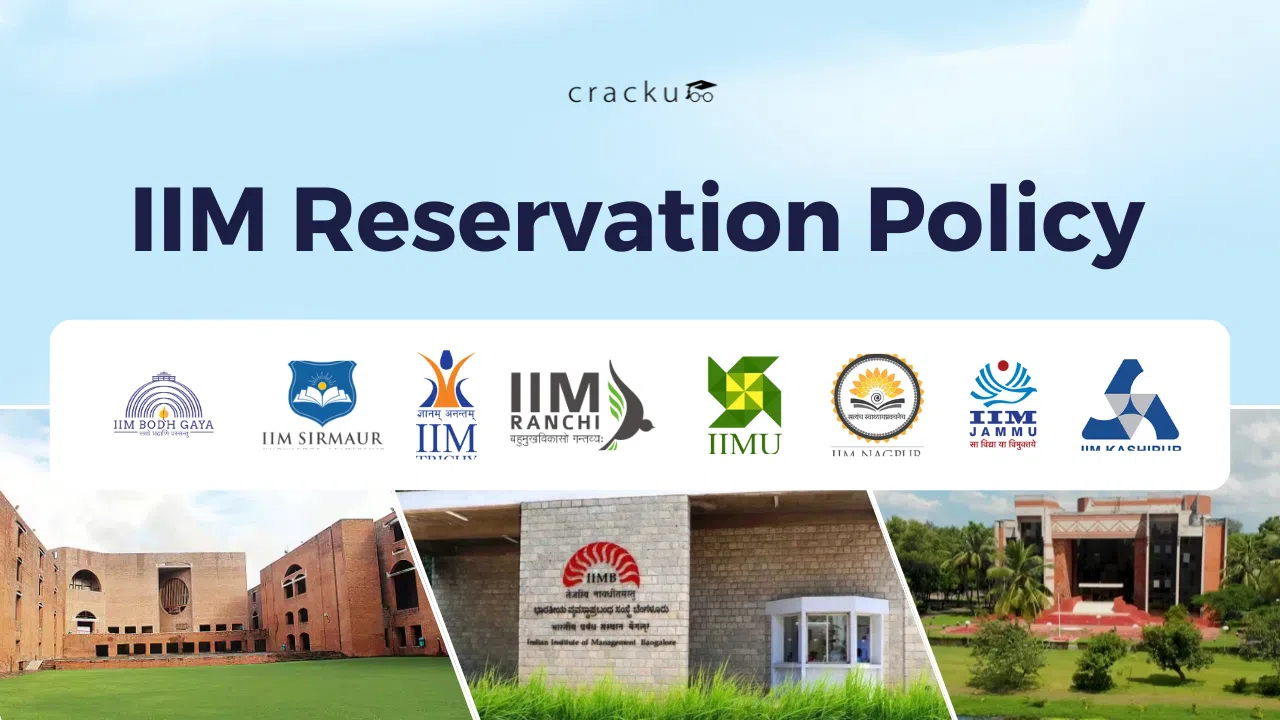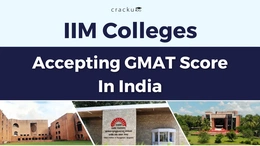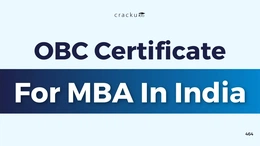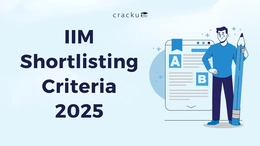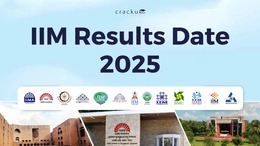IIM Reservation Policy 2025: Who gets how many seats in IIM colleges under reservation? That’s one of the most asked questions before CAT registration. IIMs follow the reservation as per the Government of India norms. Candidates must select their category carefully and submit the required documents to avoid any kind of misconception. This guide has all the details regarding the IIM registration policy 2025. Review the details carefully and prepare the necessary documents according to your category.
IIM Reservation Policy 2025
This section explains how seats are reserved in IIMs for different categories under the Government of India norms.
IIM colleges follow a reservation policy based on the Constitution of India. The seats are reserved for SC, ST, OBC (non-creamy layer), EWS, and PwD candidates. These reservations apply during both the shortlisting and final admission stages. General category candidates compete for open seats, while others compete within their respective categories.
IIM Seat Reservation 2025
The following table shows category-wise seat reservations across all IIMs for the 2025 MBA admissions.
| Category | Reservation Percentage |
| Scheduled Caste (SC) | 15% |
| Scheduled Tribe (ST) | 7.5% |
| Other Backward Classes (OBC-NCL) | 27% |
| Economically Weaker Section (EWS) | 10% |
| Persons with Benchmark Disability (PwD) | 5% |
Also Read, OBC Certificate For MBA, Eligibility, Documents Required
IIM Reservation Criteria 2025
Every reserved category has specific eligibility criteria that must be fulfilled by the applicant.
Key Conditions:
- SC/ST candidates must ensure their caste/tribe appears in the official Government list.
- OBC candidates must belong to the non-creamy layer as per the central list.
- EWS candidates must provide valid income and asset certificates.
- PwD candidates must have 40% or more benchmark disability as defined under the RPwD Act 2016.
These certificates must be valid and uploaded at the time of CAT registration and presented again during the interview process.
Also Read, List Of IIM Colleges Need Separate Application Form? Dates
IIM Category-wise MBA Seats
The category-wise number of seats in the top B schools in India is mentioned in the table below:
| College | Total Seats | SC (15%) | ST (7.5%) | OBC-NCL (27%) | EWS (10%) | PwD (5%) | General (Unreserved) |
|---|---|---|---|---|---|---|---|
| IIM A | 406 | 61 | 30 | 110 | 41 | 20 | 144 |
| IIM B | 585 | 88 | 44 | 158 | 58 | 29 | 208 |
| IIM C | 462 | 69 | 35 | 125 | 46 | 23 | 164 |
| IIM L | 490 | 74 | 37 | 132 | 49 | 24 | 174 |
| IIM K | 489 | 73 | 37 | 132 | 49 | 24 | 174 |
| IIM I | 486 | 73 | 36 | 131 | 49 | 24 | 173 |
| IIM M | 446 | 67 | 33 | 120 | 45 | 22 | 158 |
| FMS | 314 | 47 | 24 | 85 | 31 | 16 | 111 |
Note: The number of seats may vary a little due to the change in the no. of seats in top B schools.
Also Read, IIM Shortlisting Criteria 2025: Composite Score, CAT Percentile
IIM Reservation Policy for MBA 2025
Here’s how reservation applies across the IIM MBA admission process.
- Reservation is applicable at both the shortlisting and final selection stages.
- Category once selected during CAT registration cannot be changed later.
- Candidates must upload original certificates online and carry hard copies during interviews.
- PwD candidates must obtain a Unique Disability ID (UDID) and provide medical documentation.
Also Read, Non-IIM MBA Colleges Accepting Separate Application Form
IIM CAT Reservation Policy 2025
The table below explains the basic eligibility and mandatory documents required to claim each reservation under CAT 2025.
| Category | Documents Required | Additional Requirements |
| SC/ST | Caste certificate | Must match GoI schedule |
| OBC-NCL | OBC certificate | Must not be creamy layer |
| EWS | Income & Asset certificate | Issued by competent authority |
| PwD | Disability certificate & UDID | 40%+ disability required |
For OBC and EWS, some economic restrictions, those details are mentioned below, along with PWD requirements.
CAT Reservation for OBC
The OBC reservation under CAT 2025 is capped at 27%. It applies only to candidates listed under the Central Government’s OBC (Non-Creamy Layer) list.
Important Points:
- Must not fall under the ‘creamy layer’ category.
- OBC certificate must be valid as of the last CAT registration date.
- State OBCs not included in the central list are not eligible.
CAT Reservation for EWS
The table below lists the income and asset criteria used to determine eligibility under the EWS category.
| Criteria | Eligibility Status |
| Gross annual family income < ₹8 lakh | Eligible |
| Owns over 5 acres agricultural land | Not eligible |
| Residential flat of 1,000 sq. ft. or more | Not eligible |
| Plot over 100 sq. yards in notified municipalities | Not eligible |
| Plot over 200 sq. yards in other areas | Not eligible |
EWS Certificate – Competent Authorities
To apply under the EWS quota, candidates must get their Income and Asset Certificate from one of the following authorities.
This table lists the officers legally permitted to issue the EWS certificate required during CAT registration.
| Authority |
| District Magistrate / Additional District Magistrate |
| Collector / Deputy Commissioner / Additional Deputy Commissioner |
| Sub-Divisional Magistrate / Taluka Magistrate / Executive Magistrate |
| Revenue Officer not below rank of Tehsildar |
| Chief Presidency Magistrate / Presidency Magistrate |
| Sub-Divisional Officer of candidate’s residence area |
CAT Reservation for PwD Candidates
CAT provides 5% reservation for Persons with Benchmark Disabilities (PwD) with 40% or more certified disability. The table outlines accepted disabilities as per the RPwD Act 2016 for availing PwD reservation in CAT 2025.
| Category of Disability |
| Blindness and low vision |
| Deaf and hard of hearing |
| Locomotor disability (e.g., cerebral palsy, dwarfism, acid attack, etc.) |
| Autism, intellectual disability, mental illness, learning disability |
| Multiple disabilities as defined in the RPwD Act |
PwD candidates must upload their UDID and medical certificate at the time of CAT registration. If they wish to use a scribe, a filled scribe affidavit is also required.
CAT Reservation for Women Candidates
There is no fixed reservation for women in IIMs. However, many IIMs promote gender diversity through bonus points in the selection process.
Examples:
- IIM Bangalore awards 5 additional points.
- IIM Calcutta awards 4 additional points.
These points are added during shortlisting or final selection to promote a balanced gender ratio in classrooms.
Also Read, How To Get Admission In IIM Colleges? After 12th, Graduation
IIM Reservation Policy 2025: Conclusion
As mentioned above, the IIM reservation policy 2025 clearly has all the required details. So students who are going to apply for CAT 2025 must make sure their documents are upto date or if any issue is there, attach the required supporting documents. EWS, PWD candidates must make sure their certificates are valid till the date. Avoid any mistakes ahead with this guide before you enter the registration process.
